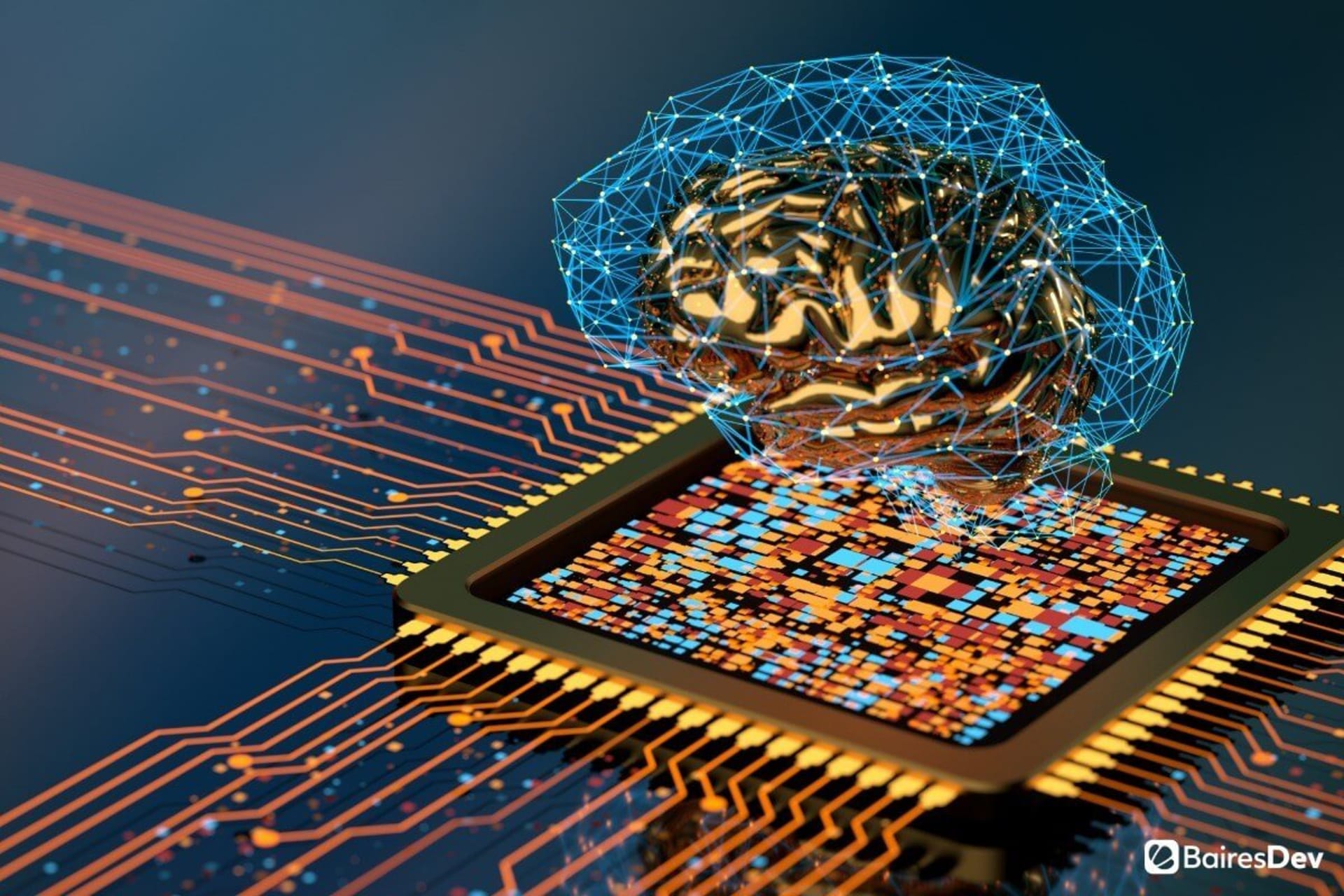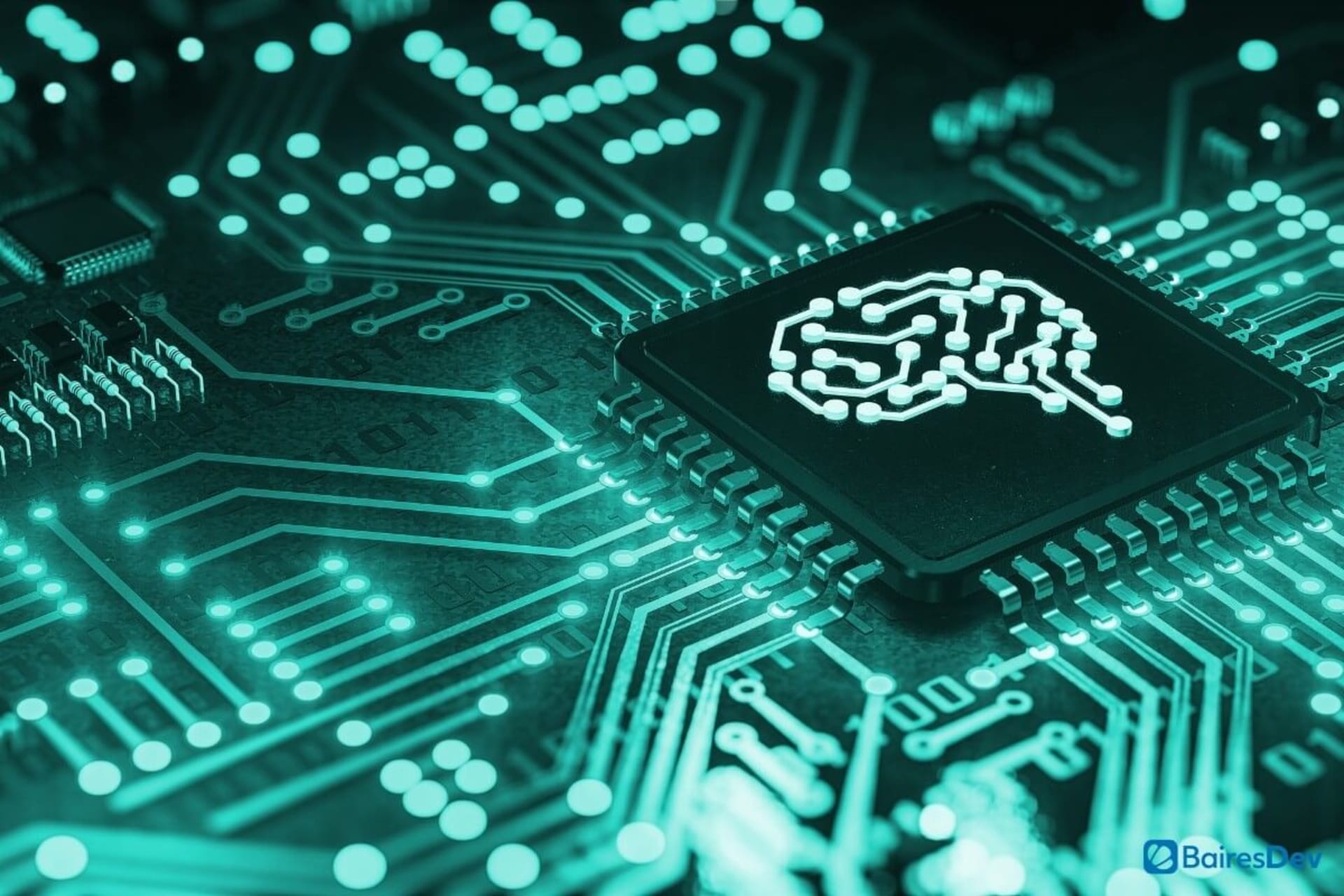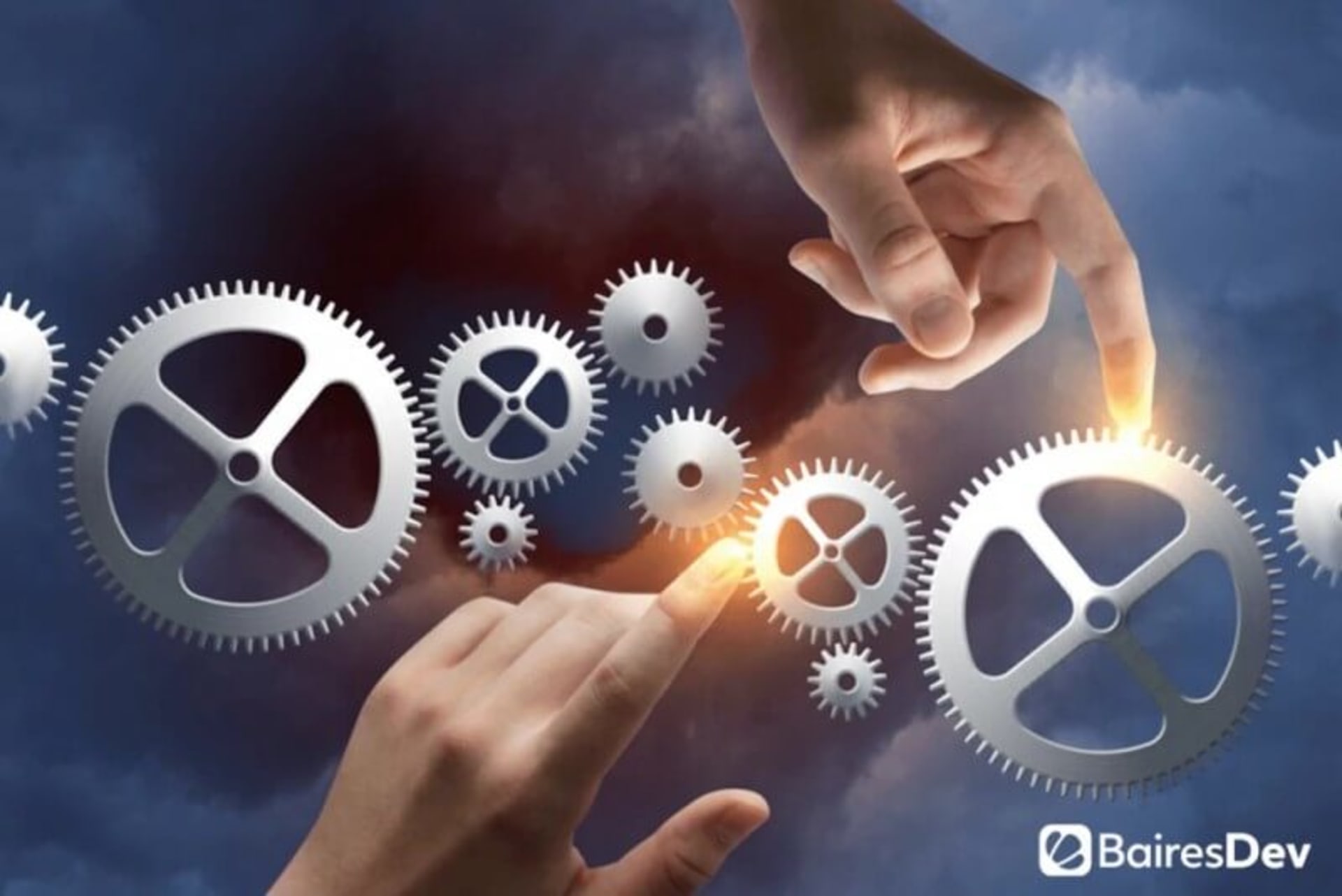Machine Learning Development Services
Access the top 1% of LATAM tech talent within 2 weeks. Develop machine learning models to perform complex calculations and computing, from predicting human behavior to fraud detection.
500+ companies rely on our top 1% tech talent.
Machine Learning Development Services We Provide
Custom End-to-End Machine Learning Development
Turn your data into actionable insights with machine learning solutions designed to fit your business needs. Our models enhance personalization, improve predictions, and help you stay ahead in a competitive market.
We handle the entire lifecycle—from data preparation and model training to deployment and ongoing refinement. Using tools like TensorFlow and PyTorch, we deliver scalable, reliable solutions that grow with your goals.
Machine Learning Operations (MLOps) Implementation
Keep your machine learning models performing at their best with streamlined deployment and monitoring. MLOps keeps your systems accurate, efficient, and ready to scale.
We automate key processes like model training and version control, using proven frameworks to help you manage models efficiently and reliably.
Data Engineering and Pipeline Development
Maximize the value of your data with pipelines built for efficiency and growth. Our solutions turn raw data into actionable insights, enabling smarter decisions.
We design and manage reliable data systems tailored to your needs, delivering seamless performance as your business and data scale.
AI-Driven Product Development
Give your software a competitive edge with AI-powered features like recommendation systems and predictive analytics. These artificial intelligence tools enhance user experiences and deliver measurable results.
We work with your team to integrate machine learning into your products, aligning every feature with your roadmap for long-term success.
Deep Learning Services
Solve complex problems and create smarter solutions with deep learning. From personalized recommendations to advanced visual recognition, deep learning drives innovation in every industry.
Our deep learning development company builds custom neural networks tailored to your needs. Using tools like TensorFlow and PyTorch, we deliver scalable solutions that grow alongside your business.
Computer Vision Services
We develop custom computer vision systems to solve complex visual data challenges, from automating quality control to enabling advanced checkout systems.
Using technologies like Convolutional Neural Networks (CNNs), we design and deploy solutions that integrate seamlessly into your workflows and scale with your business needs.
Limeade case study
Limeade needed software engineering support and help implementing machine learning algorithms as part of its core functionalities. Our team of expert engineers worked on web app development, legacy software support, and business intelligence, especially focusing on the migration of the Limeade Classic software to the new platform, Limeade ONE, including the app’s migration to microservices. Read the entire Limeade case study.

Key Facts About Machine Learning Development
Best Practices for Machine Learning Development
Machine learning is constantly evolving, so it's important to stay current with modern techniques and tools. As machine learning continues to advance, businesses need to adopt best practices that allow them to stay ahead and optimize their models. Here are the best practices we follow to ensure the highest quality and effectiveness of the ML solutions we deliver.
The ML development process begins with outlining your requirements and the procedures for building a model to meet them. This phase includes model training so your solution can solve the problem effectively and adapt as new data is introduced.
Define clear objectives, KPIs, and success criteria to inform your understanding of the problem domain.
Source data from credible sources, assess it for consistency and accuracy, and address any missing information or inconsistencies.
Experiment with different machine learning algorithms or architectures to find the best fit to address your problem.
Feature engineering affects model performance. Choose features that are relevant to the model.
Select evaluation metrics based on the type of problem.
Here’s how we build your ML solution and account for its nuances, ensuring it is robust, scalable, and optimized for performance.
Data preprocessing involves assessing the quality of your raw data. This process includes encoding categorical variables and handling missing values.
EDA—including visualizing distributions, correlations, and anomalies—helps inform decisions about feature engineering and model selection.
Improve the stability of machine learning algorithms by normalizing or standardizing the data.
You'll need to accommodate a growing volume of data, so it's important to build the model with scalability in mind. Cloud-based solutions can help with scalability.
Continuously assess and iteratively improve your ML model, testing it against new data to monitor its performance and adjust as necessary.
QA testing is critical for ensuring the ML model’s efficacy, security, performance, and functionality. Testing provides valuable insights that guarantee your model delivers results in real-world applications.
- Assess your model for biases. We use fairness metrics and testing techniques to detect issues in predictions related to factors like gender, race, and age.
Identify potential vulnerabilities and implement measures to protect your data.
Evaluate how well the model handles unexpected outputs. Assess stability and perform exploratory testing to understand how the model makes predictions.
Why Choose BairesDev for Machine Learning Development

Top 1% of Machine Learning Talent
We don't just hire machine learning talent—we select the top 1% of talent. Our rigorous vetting process ensures we bring on experts who not only master the latest tools and technologies but also stay ahead of the curve with deep knowledge of emerging trends. This means you get the most qualified professionals who can tackle even the most complex ML challenges and deliver results that align with your business goals.
Customized ML Solutions
From virtual assistants to advanced facial recognition systems, machine learning powers some of the most innovative technologies today. We’ve built custom ML solutions across a variety of industries, tailoring each project to meet specific needs. Whether you're enhancing customer experience or driving efficiency through automation, we’ll work with you to develop a solution that’s aligned with your objectives and scales as your business grows.
Rapid Development
Speed is key to staying competitive. Our team is committed to accelerating your timeline, swiftly moving from development to deployment without sacrificing quality. We understand that time-to-market is critical, and we focus on delivering robust, adaptable ML solutions that help you outpace your competition in an ever-evolving industry.
Our process. Simple, seamless, streamlined.
We begin by discussing the problem you're looking to solve, determining the ML task, and identifying metrics to evaluate the performance of the model. We'll also discuss how these objectives align with your business goals.
We'll create a plan to gather and transform data to inform your solution. We will work together to determine which engagement model is most appropriate for your business: staff augmentation, dedicated teams, or end-to-end software outsourcing. Then, we'll select the best-fit ML engineers.
Our engineers start working on your ML solution. No AI development process is linear, but typically, we'll conduct an Exploratory Data Analysis, choose the model, train the data, evaluate, and deploy the solution. We'll keep you informed of our progress at every turn.
Frequently Asked Questions
What kind of applications can you build using machine learning?
There’s a lot that you can build with machine learning across industries and niches. Examples include:
- Spam Detection Tools: Automatically filtering out unwanted emails and content using predictive algorithms.
- Recommendation Engines: Tailoring suggestions based on user behavior, preferences, and browsing history to increase sales or user engagement.
- Virtual Assistants: Providing users with intelligent, personalized interactions, such as in customer service or scheduling tools.
- Chatbots: Automating customer interactions on websites and apps to handle inquiries, bookings, and troubleshooting.
- Natural Language Processing (NLP) Software: Speech recognition tools, sentiment analysis, and language translation systems that understand and process human language.
- Fraud Detection Tools: Identifying unusual patterns in financial transactions or user behavior to prevent fraud and security breaches.
Machine learning solutions can be customized to solve specific business problems across all industries, providing better user experiences, increased automation, and smarter decision-making.
What is the difference between ML and AI?
Machine learning is a subfield of artificial intelligence. While AI is a larger umbrella term encompassing multiple branches, ML specifically concerns the use of data science and algorithms to mirror how humans learn, adapt, and grow as the model accesses more data.
Machine learning is a subset of artificial intelligence (AI), but they aren’t the same. AI encompasses a broad range of technologies aimed at simulating human intelligence, including problem-solving, reasoning, and decision-making. Machine learning, on the other hand, focuses specifically on the development of algorithms that allow systems to learn and improve from experience without explicit programming.
ML is about data-driven learning—as the system is exposed to more data, it can improve its performance and predictions over time.
While artificial intelligence can involve complex reasoning and decision-making tasks, machine learning solutions are designed to identify patterns in data, predict outcomes, and make decisions based on past observations. AI and machine learning testing tools can help verify effectiveness and accuracy of these systems as they evolve.
What types of problems can machine learning solve?
Machine learning is highly effective at solving a wide variety of business problems, especially those involving large datasets or requiring intelligent automation. Some key areas it addresses include:
- Predictive Analytics: Forecasting trends, market movements, or customer behaviors to make informed decisions.
- Fraud Detection: Monitoring transactions or user activity in real-time to identify anomalies and prevent fraudulent actions.
- Personalization: Tailoring user experiences with custom product recommendations or content suggestions based on past behavior.
- Automation: Automating repetitive tasks like data entry, customer support, and inventory management, which saves time and reduces errors.
- Image and Speech Recognition: Identifying objects, text, or spoken language in images or audio for use in fields like healthcare (e.g., radiology images) and security (e.g., facial recognition).
ML solutions are able to improve operational efficiency, enhance decision-making, and uncover valuable insights in a way that traditional methods cannot.
What are the common use cases for machine learning in business?
Machine learning has wide-ranging applications across industries, making businesses more efficient and competitive. Common use cases include:
- Customer Service: AI-powered chatbots and virtual assistants help automate customer interactions, improve response times, and reduce costs.
- Marketing: Machine learning is used to run targeted marketing campaigns based on customer data, improving ROI by optimizing ad spend and customer engagement.
- Supply Chain Optimization: ML models forecast demand and optimize inventory management to prevent overstocking or stockouts, reducing costs.
- Product Recommendations: Retailers use ML to personalize product suggestions based on individual customer behavior and preferences.
- Healthcare: ML is used for early disease detection, patient outcome predictions, and drug development, ultimately improving patient care.
These use cases demonstrate how machine learning can drive innovation, improve customer satisfaction, and streamline operations.
How does machine learning improve decision-making?
Machine learning enables data-driven decision-making by analyzing large volumes of data to identify patterns, trends, and anomalies that might not be obvious through manual analysis. By using ML models, businesses can make faster, more accurate predictions and decisions, such as:
- Identifying market trends before they become apparent to competitors.
- Forecasting sales and inventory needs more accurately.
- Improving customer targeting with personalized marketing efforts.
ML solutions deliver actionable insights that allow businesses to react to changes quickly and optimize operations in real-time.
What kind of data does machine learning work with?
Machine learning can process various types of data to generate actionable insights:
- Structured Data: Traditional numerical or categorical data (e.g., sales data, customer demographics) typically stored in tables or spreadsheets.
- Unstructured Data: Text, images, videos, and audio, which are often more complex and require specific ML models for analysis (e.g., NLP for text, CNNs for images).
- Time-Series Data: Data collection over time (e.g., stock prices, weather forecasts), is useful for predicting future trends or patterns.
- Real-Time Data: Information gathered in real time, often used in fraud detection, price optimization, or performance monitoring.
ML models can handle these diverse data types to uncover trends, automate tasks, and improve operational decision-making.
Can machine learning help with automation?
Yes, machine learning is a critical enabler of automation across industries. ML can be applied to a variety of repetitive and complex tasks, improving efficiency and reducing human error. Some examples of automation include:
- Data Entry: Automating data collection and entry processes to save time and eliminate mistakes, improving data quality across your organization.
- Quality Control: ML models can identify defects or anomalies in products during manufacturing, improving production accuracy and ensuring data mining techniques uncover valuable patterns.
- Customer Support: Chatbots powered by NLP can answer customer queries and resolve issues, reducing the need for human intervention.
- Predictive Maintenance: Machine learning models analyze equipment performance to predict and prevent failures before they occur, optimizing model training for continuous improvement.
By automating these tasks, businesses can focus human efforts on higher-value activities, boosting overall productivity.
What industries benefit most from machine learning solutions?
Machine learning development services provide immense value to a wide range of industries by helping them make data-driven decisions, improve efficiency, and drive innovation. Some of the most prominent sectors include:
- Healthcare: For accurate disease diagnosis, personalized treatment plans, drug development, and patient outcome predictions.
- Finance: For fraud detection, credit scoring, risk assessment, and personalizing financial products.
- Retail: For inventory optimization, demand forecasting, personalized marketing, and improving customer experiences.
- Manufacturing: For predictive maintenance, quality control, supply chain optimization, and production planning.
- Transportation: For route optimization, predictive maintenance in fleets, autonomous vehicles, and improved logistics.
- Energy: For energy consumption forecasting, renewable energy management, and optimization of smart grids.
Machine learning provides these industries with the tools to stay competitive, enhance operational efficiency, and create superior customer experiences that drive long-term growth.
How Businesses Can Overcome the Software Development Shortage
BairesDev Ranked as one of the Fastest-Growing Companies in the US by Inc. 5000

See how we can help.Schedule a Call










